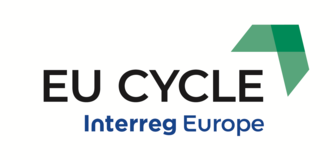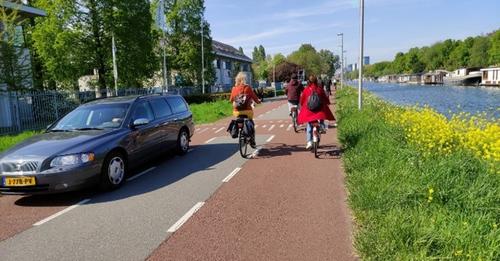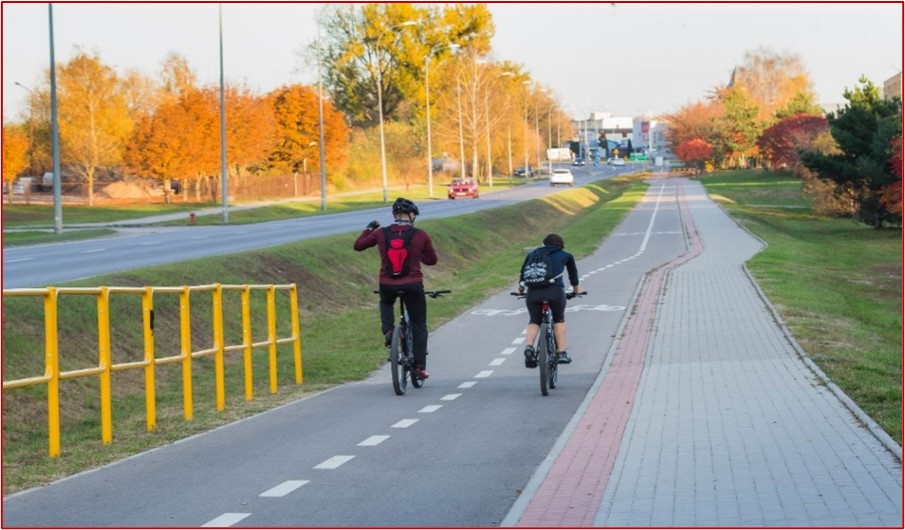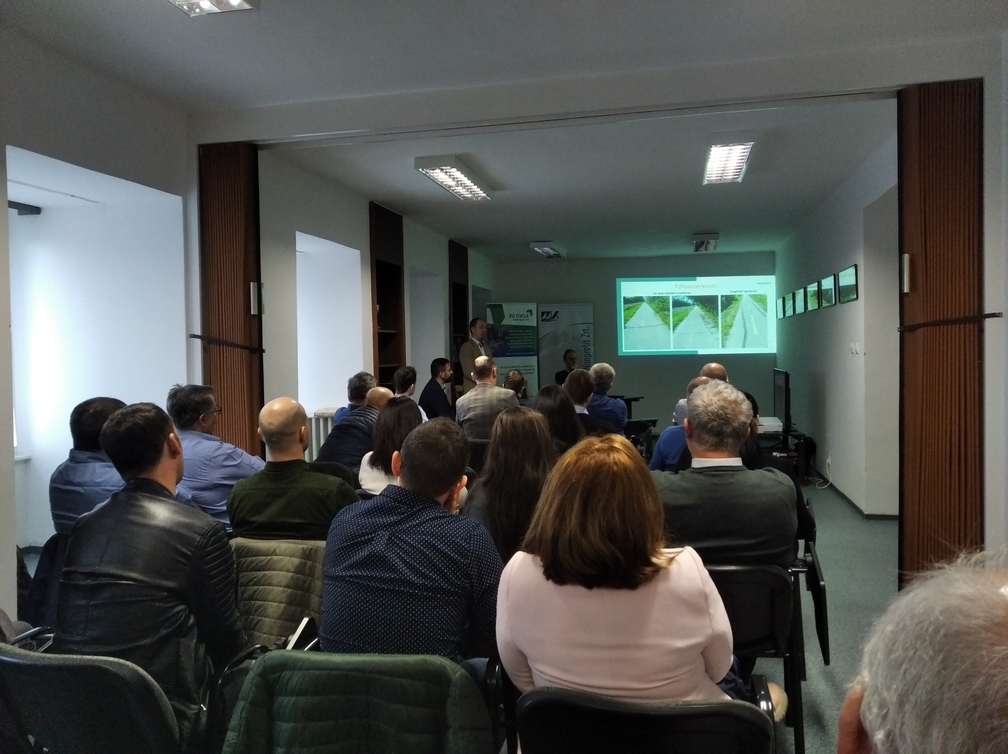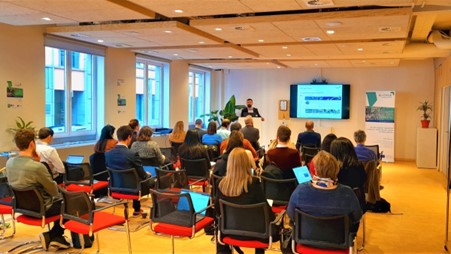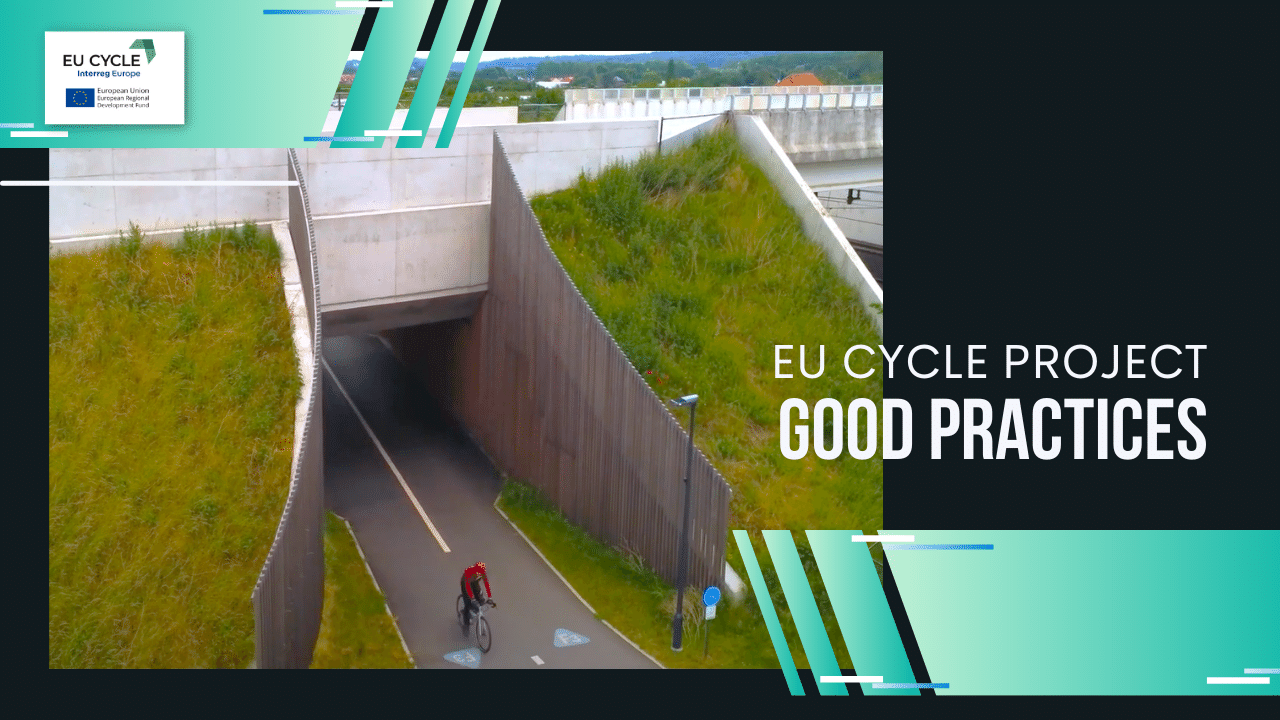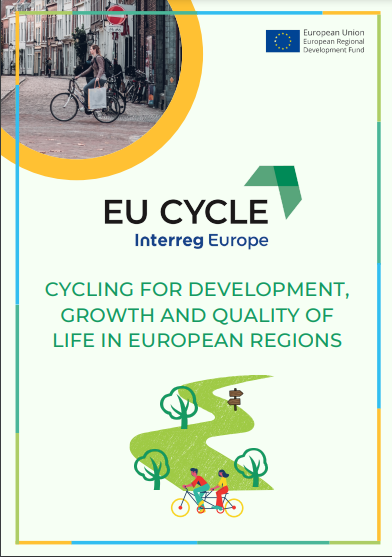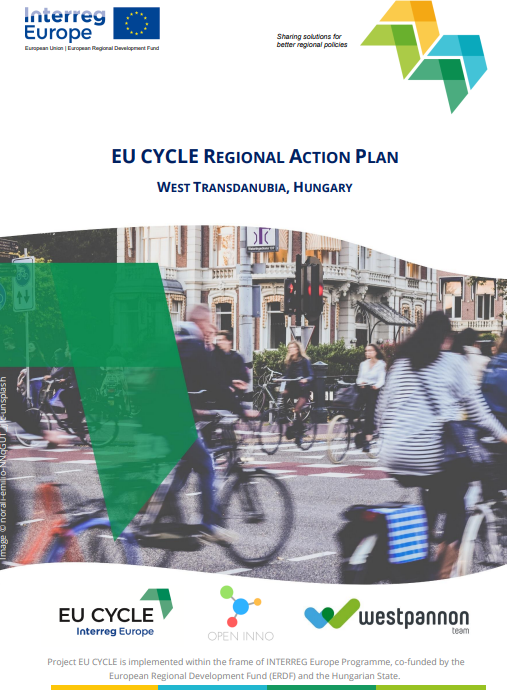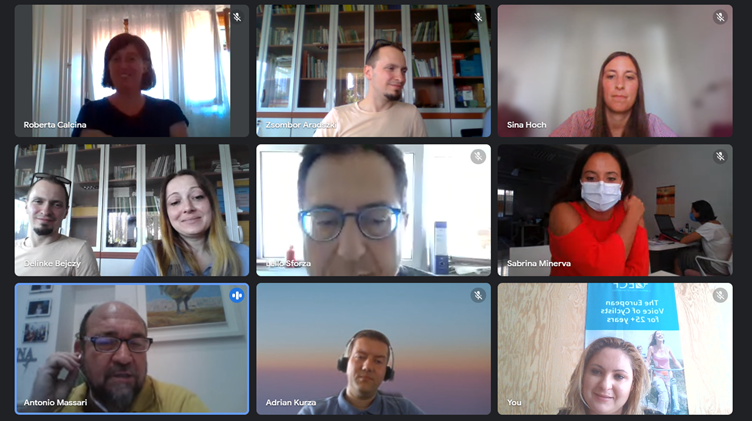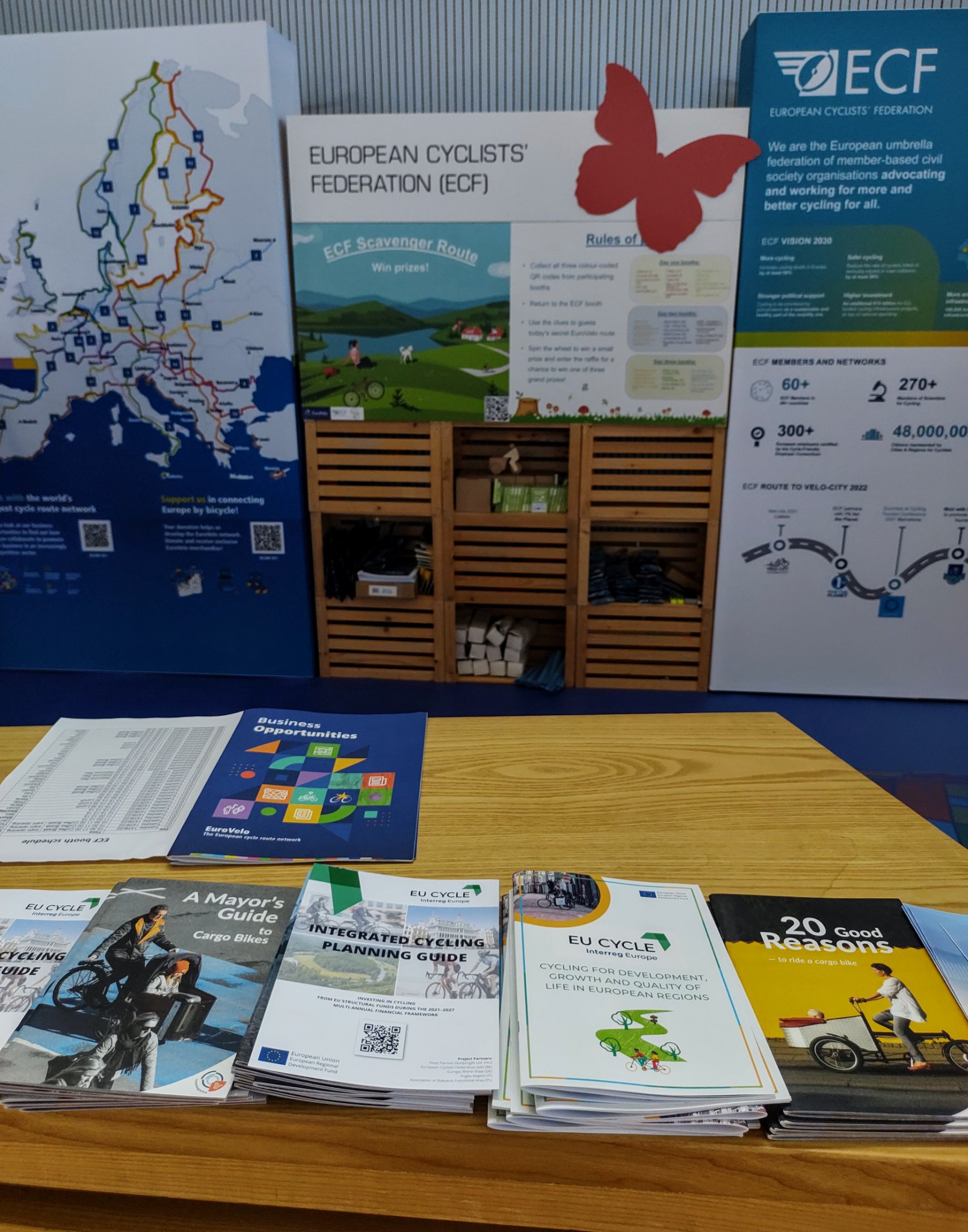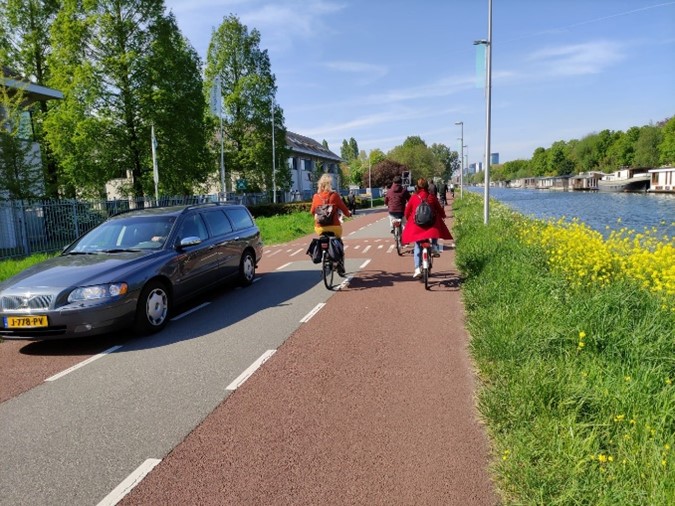Continuing the series of online study visits, EU CYCLE partners reunited once more to analyze this time good practices around intermodality .
Linking sustainable modes of transport is known to encourage people to use those instead of cars for their daily commute. GYSEV, a key actor in public transport in the West Transdanubia region, has been encouraging the combined use of train and bikes across borders in daily commuting, through conscious railway infrastructure and service development.
The railway lines run now electric trains with low floors for getting on and off easily with a bicycle. Moreover, secure bike storage areas have been established at 39 stations, storing more than 1800 bikes along the lines.


Joining from the Netherlands, Lucas Harms from Dutch Cycling Embassy and Simone Jorink from Movares explained how the bike-train combination proved to be a key ingredient for making the travelling experience smoother and connect cities, seeing that 50% of all train trips start with a bike trip.
If cycling, public transport and urban planning are well aligned, it can lead to high synergy for all three elements.
This is why bike parking is so important, and while the Netherlands is known for state-of-the-art parking, it is not something the other regions should be intimidated by, as in reality, small outdoor parking spaces are the most common type.

Looking at how the bikes are used for commuting, something to take into account when designing parking spaces is the amount of hours the bikes are being parked at the train stations. It is best to build parking for the moving bikes, providing the possibility to use a bike sharing system otherwise.
Another important element is choosing the right location, as cyclists will not cycle any further then necessary. In order to predict how many spots you need near a train station, is important to look at the modal split and the number of inhabitants per area.

Looking closely at the case of Utrecht city with its largest bike parking space in the world, the stakeholders noted the many benefits of the facility. With enough space for 12,500 bikes, electric signs will tell its users in which path they parked their bicycle so they can find it back easily. Cyclists are able to cycle right to the spot where they park their bicycle and step right into the train station, shopping mall or business area, creating a smooth connection for train passengers.

Continuing the topic, Patrick Toth from BKK Centre for Budapest Transport talked about Budapest mobility and MOL Bubi - the first shared mobility solution launched in 2014. The city is continuing to pursue the increase of the modal split for cycling by making improvements such as providing lighter bicycles, adjusted pricing based on the customer needs and simplified registration system.
In 2019 the city signed an agreement with 5 mobility service providers and introduced as well mobility points with shared mobility services concentrated in an organized environment. This encouraged the use of sustainable transportation modes, and as a result, it was noted that the users are willing to change their transport habits if more mobility points were available.
To scale-up the pilot intervention, a test for a small network of mobility points was launched in 2020 which showed an increase of usage of the micro mobility services, of which 5-10% of the trips would have been car trips otherwise.

Further on, Raffaele Sforza introduced the free bike transport service on trains in Puglia region. The service was introduced as a result of the agreement signed in 2017 between the regional government and 5 railway transport companies operating in the region. Apart from the elimination of the costs of the ticket for bike transportation, the companies were also required to commit to equipping their trains with spaces dedicated to the transport of bicycles, providing stations with barrier-free and signposted paths and equipped areas for parking.

Nico Capogna presented another good practice from Italy - Pin Bike, a gamification system for smart cities, that allows a municipality, a company or a school to provide economic incentives to people who use their bicycles for their commute. The project aims at fighting the ‘car culture’, providing good reasons to use bicycles instead of cars.
The municipality can customize the incentives according to certain days or time (e.g. with traffic congestion), or even according to users’s age. The system is active in several Italian municipalities and the results are tangible: since its first activation, the system has reached an average of up to 7 km/day/person. The technology is anti-fraud and certified, thanks to the hardware device mounted on the bike which allows the organization to check the user's bike activity.

The recording of the event is available on the project YouTube channel.
